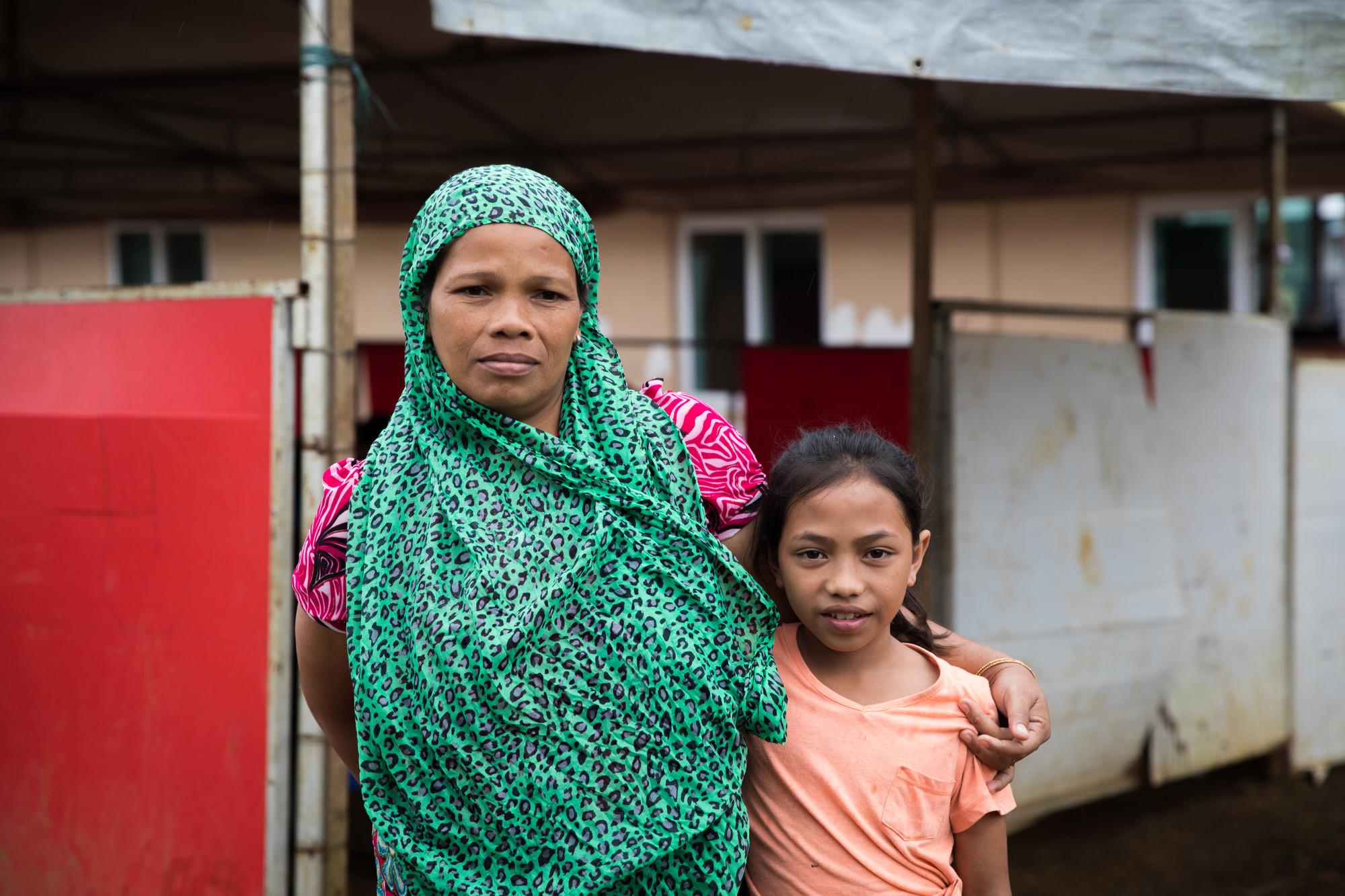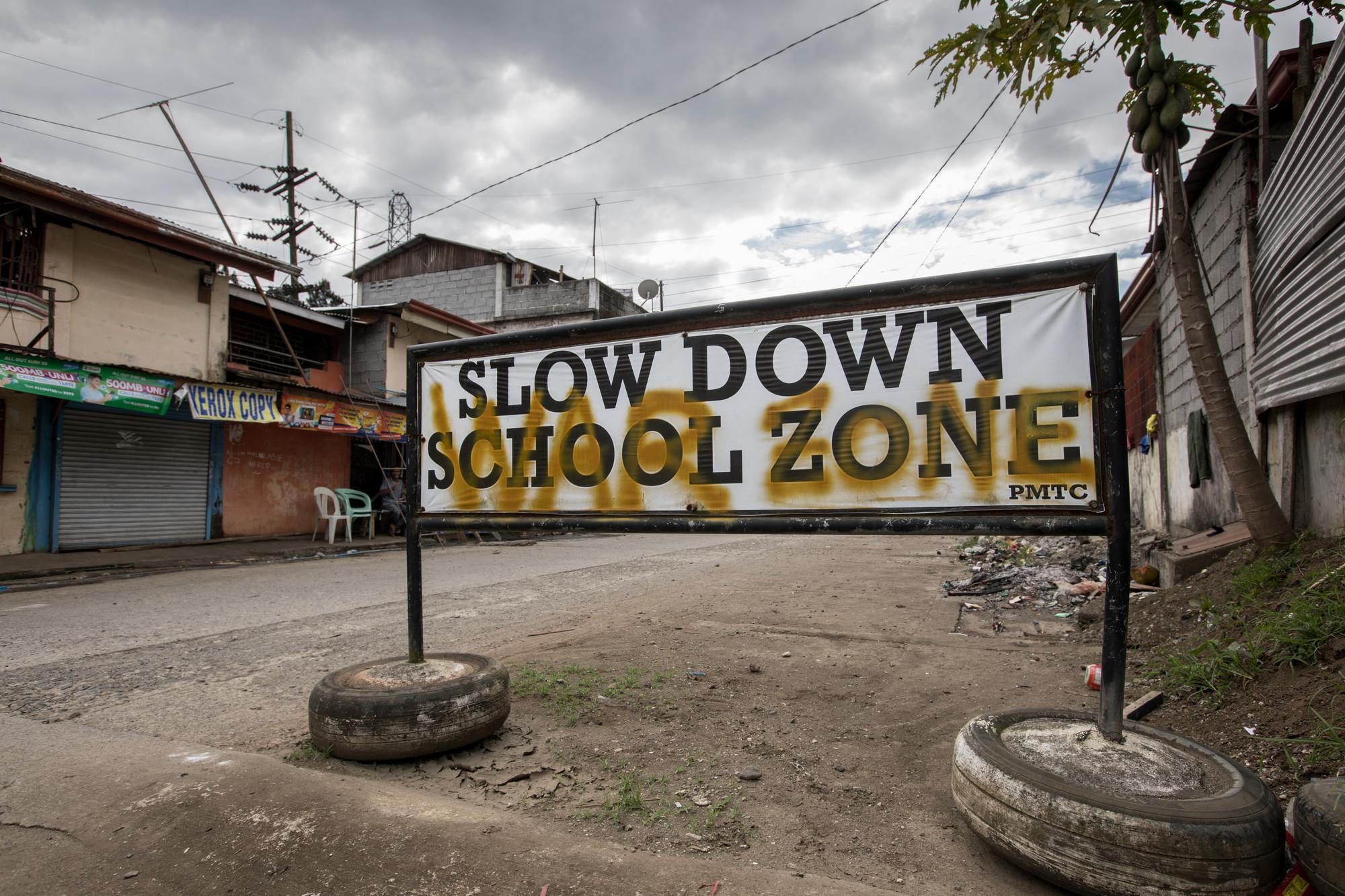Philippine children tell of witnessing 'unspeakable horrors' during Isis siege in Marawi
Exclusive: 80,000 young survivors of 'forgotten crisis' remain displaced as charity warns many facing battle to overcome psychological scars
It was late at night when armed men banged at 10-year-old Aisah’s home and told her family the bombing would soon begin.
Her terrified parents rounded up their seven children, grabbed the few belongings they could carry, and fled.
The family passed burning buildings and bodies in the street as they joined thousands of people streaming out of the southern Philippine city of Marawi, where the sound of gunfire filled the air.
Isis-linked fighters had seized control of the city, and it would be five months before their bloody siege was ended by government troops.
Nearly 360,000 people fled and took refuge in neighbouring villages as the Philippine army began bombarding the Islamic militia in May last year.
Aisah* was one of around 160,000 children evacuated, walking for hours on bare feet with her family to reach the safety of Taraka, a town 15 miles away.
On the journey she saw Isis fighters burning down schools and homes, and hunting down people who could not speak Arabic. The constant sound of gunfire left her shaking with fear.
“I was scared because I heard the blasts of the gun,” she said. “While we were walking I was really scared of the gunshots. And the night before, they had burned down different houses.
“While we were walking, we saw a Christian shot dead on the other road.”
Her mother Vilma*, a fruit seller who was seven-months pregnant when the conflict erupted, said: “The fighters were shooting. They also burnt the school down. They were killing the Christians. They would kill any people who could not speak Arabic.
“While walking to Taraka, my stomach was aching because I was pregnant. I could not endure it any longer. I felt like I was going to give birth. I was operated in the hospital... But my baby had died inside my stomach.”

Ten months later the family are still unable to return home, with much of their historic, once-thriving city reduced to rubble. Like many families, they are left living cramped evacuation camps without running water.
Aisah is one of about 80,000 children who remain displaced. While the gun battles and bombings are over, many young people face another battle: to recover from the psychological scars the conflict has left behind.
Sasha Nicholl, a charity worker for Save the Children who visited the city in February, told The Independent: “The children of Marawi are survivors of a forgotten crisis. They’ve endured a war of unspeakable horrors, which saw them subjected to bombings, shootings and abductions. Many lost loved ones in the conflict, or witnessed their homes and schools set alight and destroyed.”
Ms Nicholl and photographer Hanna Adcock were the first British women to enter Marawi following the end of the siege.
They found children traumatised by what they had seen as they fled the city. Some would suddenly burst into tears, while others have become withdrawn or scared of loud noises. Many believe they can still hear bombing and shooting.
Ms Nicholl said: “During my time here, I’ve seen first-hand the psychological toll of these events on young minds: children scared of loud noises, angry at their parents, prone to breaking down in tears. Visiting their hometown of Marawi – seeing the bombed-out schools and destroyed homes – was a stark reminder of what they’ve been through.”
Pokelan*, a mother-of-seven whose family also remain one of the many ”tent cities” surrounding Marawi, said she had noticed changes in her seven children. They were forced to flee as bombs rained down around their home. Their neighbour had already been shot by sniper after leaving to buy nappies for his one-year-old child.
“When we went to bed, we could not sleep because the bombs were exploding until five in the morning,” she said. ”That’s why my husband told us to leave. And then we started running.”
In the evacuation camp, they found safety but no solace.
Pokelan and her husband, both prosperous traders less than a year ago, have no means of making money. They say their eldest children have grown angry and withdrawn, while the youngest did not speak for days after evacuation.
“We really lack food here too,” said Pokelan, 38. ”We only get given good rice sometimes. We always get sardines and corn beef. Hence, my children got sick.
“All of them. All seven. One of my daughter’s head was bald.
“Because of all the fighting, they’ve suffered shock. I think because there were bombs falling in that place. They were sleeping and suffered shock. Because of the strength of the bombs falling around us. They were really powerful. Just imagine every 30 minutes, there were two bombs falling.
“And I said, look at the attitudes of our children. They’re different.”
She added: “We will do everything to survive and we still endure the pain we feel with this situation. I told my children to bear the sacrifice and be patient.”
The Philippine government estimates that the rebuilding effort will cost more than a billion US dollars (£755 million). It will take years to restore the major roads, bridges, schools and government buildings damaged during the fighting.

Save the Children has set up 28 temporary classrooms to host lessons for displaced children, and has been helping to provide psychological support for those who have been traumatised.
Aisah has made new friends and says she loves classes. But she also longs to return home.
“I want to go to school because I want to fulfil my dream of becoming a teacher,” she said.
“We also studied in Marawi – but then we had to stop because of the conflict. I was in my teacher’s house that day when we heard the blast of guns.
“I hope that our house can be rebuilt so that we can go back to Marawi, because we’re not happy here. It’s more fun in Marawi than here. Whatever we did there, we were still happy.”
* names have been changed
Join our commenting forum
Join thought-provoking conversations, follow other Independent readers and see their replies
Comments
Bookmark popover
Removed from bookmarks